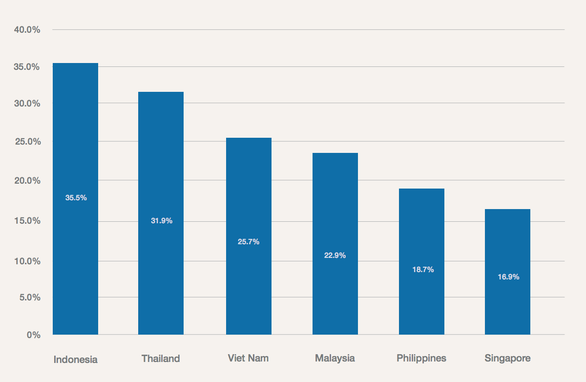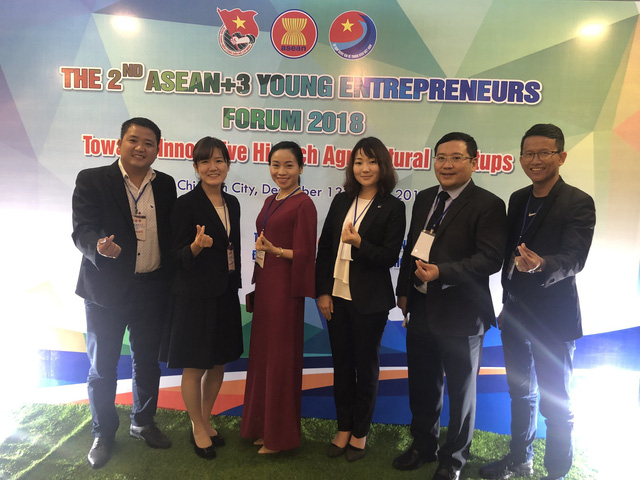Vietnam ranks third among six ASEAN countries in terms of the proportion of young people aspiring to become entrepreneurs and business owners, according to results published on Friday of a survey carried out by the World Economic Forum (WEF).
ASEAN is a political and economic organization whose members include Brunei, Cambodia, Indonesia, Laos, Malaysia, Myanmar, the Philippines, Singapore, Thailand, and Vietnam.
WEF conducted the survey on 56,000 respondents aged from 15-35 in six ASEAN countries - Indonesia, Thailand, Malaysia, Singapore, the Philippines, and Vietnam - to analyze their views on future of work, skills and technology.
It asked the young ASEAN citizens what type of organization they work for today, and where they would like to work in the future.
According to the results, ASEAN youths show a strong preference for entrepreneurial settings.
About 25.7 percent of surveyed Vietnamese want to work for themselves, putting the country in third place in the region for entrepreneurial spirit.
Indonesia and Thailand take the first and second positions, respectively, with 35.5 percent and 31.9 percent of their youth either currently work for themselves or would like to.
Malaysia with 22.9 percent, the Philippines with 18.7 percent, complete the top five, while Singapore with 16.9 percent comes in last.
 |
| The share of youths in each ASEAN country who aspire to be an entrepreneur in the future. Source: WEF |
On the average across all six ASEAN countries in the survey, over 26 percent of respondents work for themselves, up slightly from the previous year, while almost one percent more aspire to in the future.
The total of entrepreneurs and those working for start-ups added together accounts for 31.4 percent, or almost one-third, of the youth in ASEAN countries.
Aside from becoming a business owner, the lure of working for a multinational company is also growing in popularity. About 18.8 percent would like to work for a foreign multinational in the future, more than twice the current rate of 8.6 percent doing so.
Meanwhile, traditional small- and medium-sized enterprises (SMEs) are seen less favorably by the ASEAN youths as only 7.5 percent want to work for SMEs in the future, while 18.3 percent of respondents work for one today.
When asked which skills they believe will be most valuable in the future, ASEAN youths place higher value on soft skills such as emotional intelligence, resilience and adaptability than hard skills generally regarded as “STEM” including science, technology, engineering and maths.
Given the importance that ASEAN youths attach to developing their skill sets, WEF advised in its survey report that SMEs undertake public-private projects to help equip their workers with the skills they need as a way to address potential recruitment challenges, as well as prepare workers for the future.
Like us on Facebook or follow us on Twitter to get the latest news about Vietnam!

















































